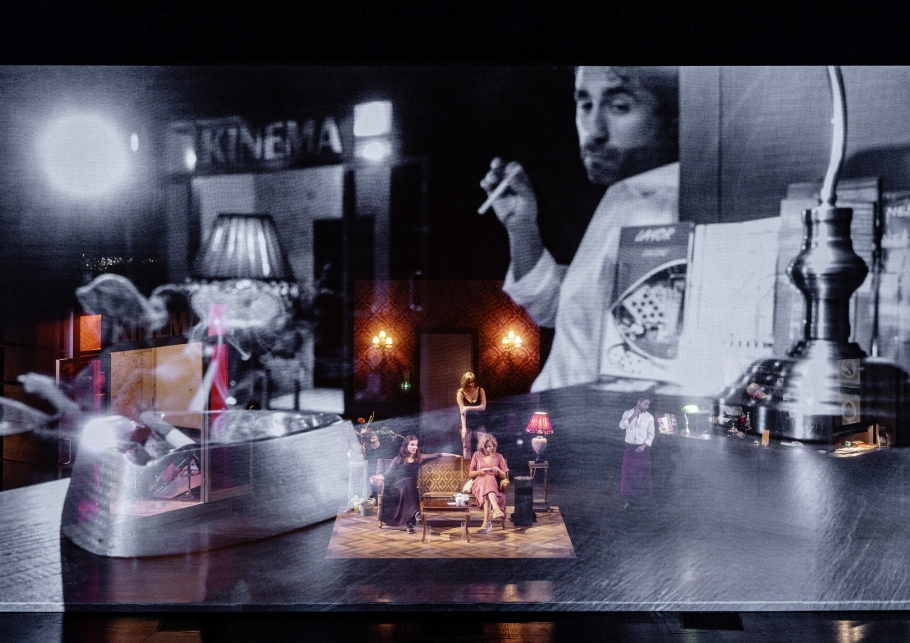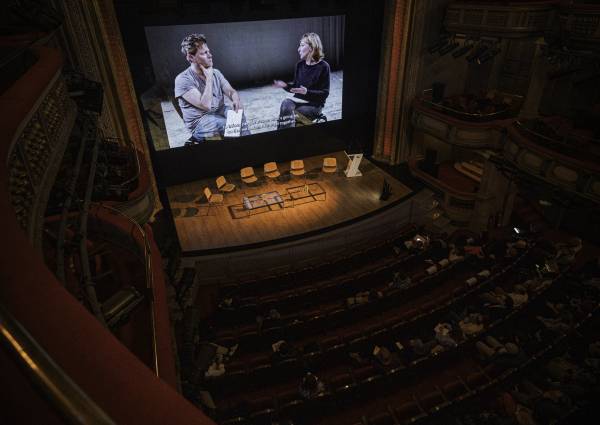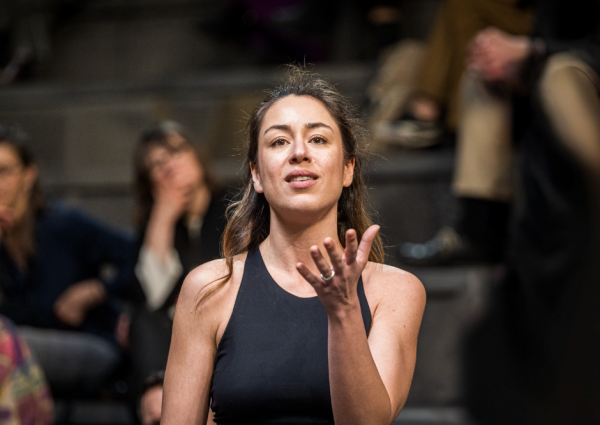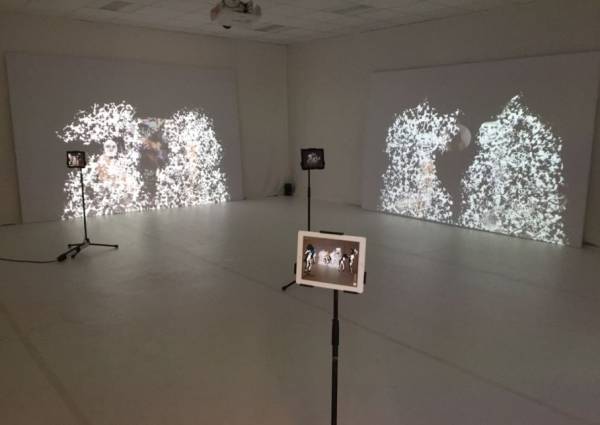A new practical guide has been released to help people working in theatre and the performing arts broadcast recorded performances online.
Performing Arts Recordings and Broadcasts: A practical manual on author’s and related rights, written by copyright experts at the University of Liège and the University of Mons (Belgium) identifies the various legal issues that arise across Europe when recording performances and broadcasting them online – and offers practical advice on writing contracts to address these challenges in a simple way.
Performing Arts Recordings and Broadcasts - A Practical manual on author's and related rights
DownloadCaptations du spectacle vivant : manuel pratique des droits d‘auteur et droits voisins
DownloadThe study was created as part of the Prospero - Extended Theatre project, co-funded by the Creative Europe programme of the European Union, which supports the production and touring of nine plays in Europe and online (see below). It is published as part of the European Theatre Convention (ETC) research series, ETC – A Study.
“We know that the COVID-19 pandemic and the related theatre closures encouraged theatres to experiment with broadcasting their shows to online audiences” commented Serge Rangoni, General and Artistic Director of Théâtre de Liège, the lead partner in the Prospero - Extended Theatre project. “But we don’t talk as much about the complex legal issues that surround the process, and the lack of knowledge and understanding for these issues among producers and broadcasters.”
“That is why we commissioned two copyright experts to produce this study, which has given us a much clearer understanding of the nature of these issues, the obligations they entail for producers - and the steps we must follow to fulfil them. We’re proud to be able to partner with ETC to share the information with the sector across Europe.”
Heidi Wiley, Executive Director at ETC, said: “Having the right skills and competences to enable digital theatre is key for digital readiness when talking about now and the future of theatre making and about interacting with audiences.”
“The European Theatre Convention (ETC) is a network for European theatres that strives to strengthen European theatre as a dynamic art form that is innovative, timeless, and relevant for society as we face the crises and challenges of the 21st century.”
“With our work we experiment and test new artistic practices at the international level and then reflect on and share our findings with the wider community. Documenting these findings of applied research is crucial to us when advancing and creating progress. We are proud to make available the work of the project as part of the publication series, ETC – A Study.”
A new practical guide
The study is meant to provide non-lawyers, in particular theatres, with a tool to manage the legal questions associated to the recording and broadcasting of a live performance.
It was written by Maxime De Brogniez and Antoine Vandenbulke, copyright experts and academics at the University of Liège and the University of Mons in Belgium.
“The capture and audiovisual broadcast of live performances (theatre, concerts, opera, etc.) leads to particular requirements as regards author’s rights and related rights” the authors write. “Managing these constraints is of primary importance for cultural operators. Indeed, a lack of authorisation or an inappropriate authorisation to the specificities of a recording and an online broadcast can purely and simply block the whole enterprise.”
The study is divided into two parts:
- An introduction to the relevant legal concepts and principles behind author’s rights and related rights, and how they apply to the broadcasting of performances
- A closer look at the contractual relationships that emerge in the process of recording and broadcasting of live performances, with examples of contractual clauses.
Prospero-theatre.tv
The need to create Performing Arts Recordings and Broadcasts: A practical manual on author’s and related rights emerged as the ten partners of the Prospero - Extended Theatre project (full list below) developed a new platform to stream recordings of plays online.
Prospero-theatre.tv will host the recordings of the nine plays produced during the project:
Already online:
- Fraternité, Conte fantastique – direction by Caroline Guiela Nguyen, at Odéon-Théâtre de l’Europe (Paris/France)
- The Silence – direction by Dead Centre, at Göteborgs Stadsteater (Göteborg/Sweden)
Coming soon:
- Imagine – direction by Krystian Lupa, at Teatr Powszechny
- Sorry – direction by Bobo Jelčić, at the Croatian National Theatre in Zagreb (Zagreb/Croatia)
- Hedda – direction by Aurore Fattier, at Théâtre de Liège/Belgium)
- Calderón – direction by Fabio Condemi, at Emilia Romagna Teatro ERT
- Pendulum – direction by Marco Martins, at Teatro São Luiz, Lisbon
- Play produced by Schaubühne Berlin – direction by Yael Ronen
- Play produced by Teatros del Canal (to be defined)
This content will be available for free across the whole European Union and in nine different languages. Prospero-theatre.tv will also host further play recordings and additional contents, such as interviews with artists or documentary pieces on theatre.
Photo credit: Tystnaden/The silence, Göteborgs Stadsteater, Bergman, (c) Ola Kjelbye
--ENDS---
Press contact
Christy Romer, ETC Communication Manager
About the Study
This study was produced as part of Prospero - Extended Theatre, a project co-funded by the Creative Europe programme of the European Union (2020-2024).
This publication reflects the views only of the authors, and the European Commission cannot be held responsible for any use which may be made of the information contained therein.
It is also availabe to read in French, below.
About the Authors
Maxime De Brogniez holds a Master’s degree in law and a Master’s degree in philosophy. He is a lecturer at the University of Liège, where he is also pursuing a PhD. He is the author of several publications in the fields of author’s rights, art and culture law, administrative law and philosophy of law. He is particularly interested in the links between law and philosophy of art.
Antoine Vandenbulke is a professor of economic law, including aspects of intellectual property rights, European law and comparative law at the University of Mons (UMons - ULB Law School). In addition to his research in these general disciplines, he completed his doctoral thesis on the legal aspects of the financing of the performing arts (University of Liège, 2020) and has a strong interest in the relationship between law and art. He has also been a visiting scholar at the University of Paris II Panthéon-Assas and at Columbia University in the City of New York.
Antoine Vandenbulke and Maxime de Brogniez occasionally advise cultural institutions on various legal issues.
About Prospero - Extended Theatre
Prospero - Extended Theatre is a project that brings together ten partners from nine European countries. Co-funded by the Creative Europe programme of the European Union, this project runs from December 2020 to November 2024.
The project partners: Théâtre de Liège (project leader/Belgium) supported by Wallonie-Bruxelles International; Emilia Romagna Teatro Fondazione (Modena/Italy); São Luiz Teatro Municipal (Lisboa/Portugal); Göteborgs Stadsteater (Göteborg/Sweden); Hrvatsko narodno kazalište u Zagrebu (Zagreb/Croatia); Teatros del Canal - Comunidad de Madrid (Spain); Schaubühne Berlin (Germany); Teatr Powszechny (Warsaw/Poland); Odéon-Théâtre de l’Europe (Paris/France); ARTE (Strasbourg/France).
Prospero - Extended Theatre is founded on three axes: the production of nine plays and their tour in Europe; the development of an OTT streaming platform hosting, among others, the recordings of the nine plays produced; and audience development activities.
More information can be found on: www.prospero-theatre.eu
About ETC
As the largest network of public theatres in Europe, the ETC has 59 European Members from over 30 countries, reflecting the diversity of Europe’s vibrant cultural sector.
Founded in 1988, the ETC promotes European theatre as a vital platform for dialogue, democracy and interaction that responds to, reflects and engages with today’s diverse audiences and changing societies.
ETC fosters an inclusive notion of theatre that brings Europe’s social, linguistic and cultural heritage to audiences and communities in Europe and beyond. Powerful and professional ETC governance ensures that the network will thrive and grow, taking into consideration the latest trends and developments.
The ETC’s current three-year programme of activities, “TRANSFORMATIONS - Recharging European Theatres and Audiences in a Post-Covid World”, offers Member Theatres many opportunities and project possibilities. This comprehensive, groundbreaking programme is supported by the Creative Europe Programme of the European Union.






